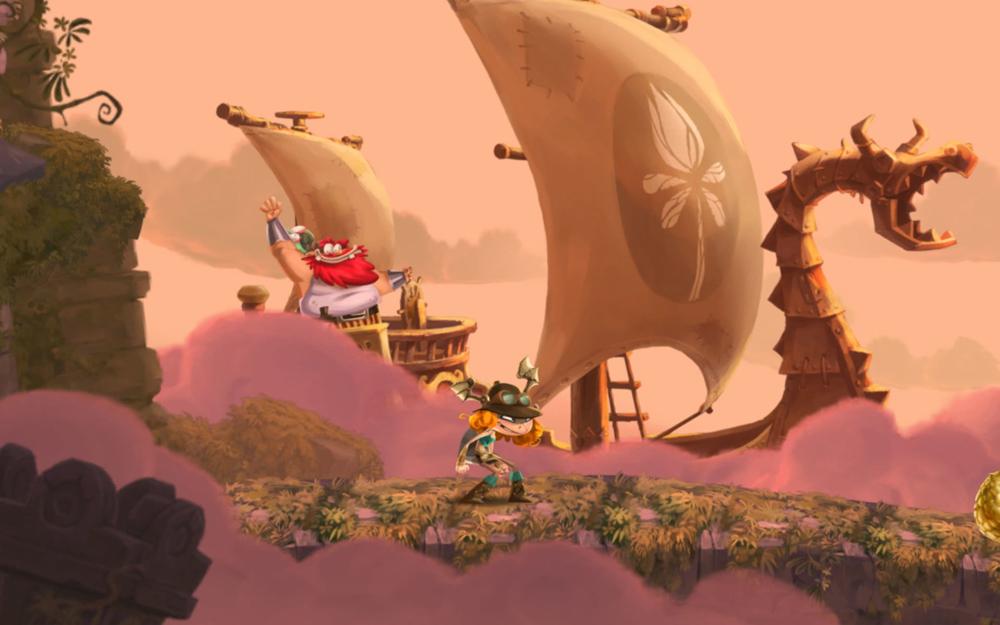Monetising handicaps
Recently I was talking about games and the increasing presence of the Free to Play model with a friend and avid gamer. He expressed concerns about the way that this monetisation model has the tendency to bleed into the mechanics of the game and negatively impact the experience. He was not wrong, this happens. When designing F2P games it has proven to be challenging to find a fair way of including monetisation. Countless examples exist where the monetisation gets in the way of the fun, which always results in a bad game experience. I've seen lots of games ruined by blunt attempts of bringing money into the picture.
Even games that are able to be played for free without a monetary investment (also known as "good F2P games") can't be careful enough ensuring players like my friend that the game they are playing will 'play fair'. I'll break down an example below.

A good F2P game should never make the player hit a hard barrier to progress, one that can practically only be overcome by converting. We know this. It doesn't leave any choice to the player and they'll simply quit playing. What is possible however, is giving players the option to skip a bit of grind or at least nudge the chances of winning a game into the right direction. All Candy Crush levels can be beaten, although the chance of being able to win might be about 5%, depending on the randomness of the colours falling into the board. Increasing the percentage by paying some currency feels O.K. since
this is presented as a voluntary choice and skill is still required to win the level.
The problem arises when the skill factor becomes more visible, which is the case in platform games like Rayman Adventures. One of the reasons why Match-3 games (like Candy Crush) are so wildly popular in the F2P space is because they masterfully mask the amount of skill that is required to win the level. In Rayman it's very clear when a player's jump is a little off, since it results in missing a couple of Lums that need to be collected to win the level.
This all wouldn't be a problem if the player could simply try levels again, which is possible in Rayman Adventures. Starting a level doesn't require any currency so playing levels is essentially free, but alas... it's not that simple.

In Rayman Adventures, right before the level starts, players have the option to select creatures called Incrediballs. These creatures give the player extra powers, like the power to attract Lums from a bigger distance, for example. At the end of each level, the amount of Lums collected translates into winning the level (or not) and the rewards earned.

After each level, if the player has used an Incrediball for support, the little marble-shaped monster falls asleep and the only way to wake it up is by using food to feed it, which is the core of the issue I was referring to. Food is a finite resource and when tapping on the little + next to its counter, the game suggests using gems to get more (converted about 7 cents for one).

If at a point, the player needs to retry a level like the inhaler's introduction level, which (as a good introduction level should) clearly shows that Incrediballs can have a huge impact on the results of a level, and has to use the finite, purchasable food currency after each try, any concerns that players like my friend have will be confirmed. It feels like I now have to pay to remove the arbitrary handicap that was bestowed upon me to play the level the way it should be played.
Game Designers need to be very cautious of player skepticism towards the F2P model. I can imagine quite a high amount of churn during the inhaler's introduction level because of the incorrect precedents this experience sets. This is a shame because Rayman Adventures is a beautiful game with great level design and lots of cool features that as many players as possible should feel motivated to enjoy.

The biggest shame of this all? Players who choose to continue playing Rayman Adventures will eventually find out they will get plenty of food to not run out because most levels are actually pretty doable without the use of Incrediballs!
Attempts to make this system at least work better could be made by making the Incrediballs wake up automatically after an hour or two. This way the amount of food players get can be reduced and scarcity can be created, opening the door to some light monetisation, potentially.
The takeaway from this example is that visibly limiting the player's ability to play a game optimally and then seemingly requiring them to pay for it is dangerous business. Especially during the first hours of gameplay when the player still needs to be convinced to keep playing.
Don't modify the player'score gameplay experience because they didn't convert.
Next PostThe charm of Super Smash Bros.Previous Post
Deconstructing Disney Heroes: Battle Mode